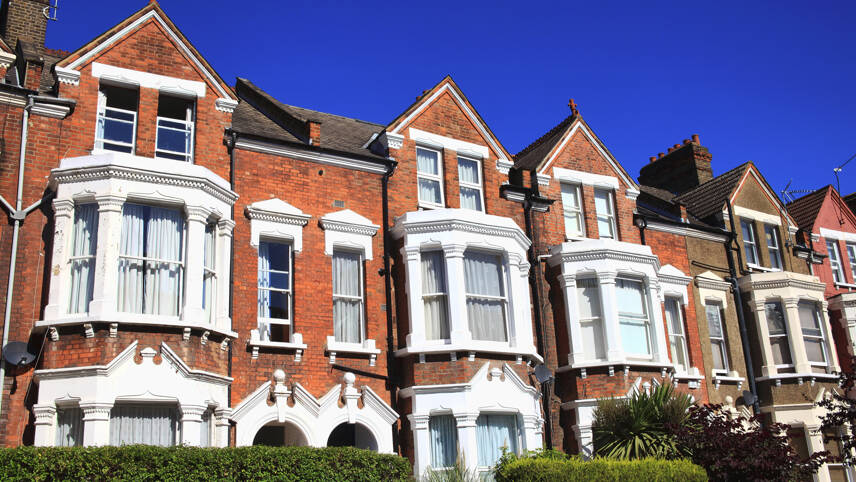Register for free and continue reading
Join our growing army of changemakers and get unlimited access to our premium content

A new report co-authored by Net-Zero Review author Chris Skidmore MP and green building expert Simon McWhirter makes the case for the Government to target a 30% reduction in energy demand in buildings by 2035, against a 2021 baseline. At present, it is only targeting a 15% reduction.
This strengthened target, the report states, should be one of several informing a new ‘Retrofit Mission’ within the Government, given its commitments regarding energy security and costs as well as its legally binding carbon budgets.
Such a Mission would build on the £1bn Great British Insulation Scheme running through to March 2026. It should have a ten-year duration, providing the private sector and the general public with a clear long-term direction of travel on low-carbon heating and energy efficiency regardless of which Party is forming the Government.
Skidmore was told by E.ON earlier this year that “the supply chain remains blighted by short-term certainty, with schemes of one to three years in length”.
Other Mission targets should include a ban on new gas boilers from 2030 and a commitment for 50% of buildings to be served with low-carbon heat by 2035.
Looking beyond this point, 80% of all homes should use heat pumps by 2040 and gas cooking should be phased out from all homes between 2040 and 2045. By 2050, no homes should have gas boilers and one in four homes should be fitted with solar panels.
All of these proposed targets are modelled on previous recommendations from the Climate Change Committee (CCC) and UK Green Building Council (UKGBC).
These are in addition to targets already set by the current Conservative Government. In its 2021 Heat and Buildings Strategy, it pledged to ensure that heat pumps are no more expensive to buy and run than gas boilers by 2030, with an interim 2025 pledge to reduce installation costs by 25-50%.
The Strategy also includes a target for 600,000 annual heat pump installations from 2028, which Ministers have repeatedly been told will not be met without concerted efforts to scale supply chains and the base of skilled workers needed to fit and maintain heat pump technologies.
Beyond target-setting
The report notes that previous governments have set long-term targets on decarbonising heat and buildings and emphasizes the importance of backing targets up with strong delivery plans.
Delivery efforts have, in the past, been blighted by challenges other than governments making U-turns and/or failing to set out proper delivery plans, the report notes.
It cites consumer engagement and consumer protections as a major sticking point, but concludes that this challenge would not be insurmountable. It recommends the launch of a national communications campaign and the creation of a new national advice services – a ‘one-stop-shop’ for members of the public to ask key questions.
The need for more innovative finance projects and changes to existing market infrastructure is also discussed in the report. It states that the government has, to date, only provide “limited” support for the development of green finance products, and will need to do more to stimulate this emerging market.
This work should set with an Energy Efficiency Taskforce, the report argues. But Sunak moved last weekend to begin disbanding this Taskforce just six months after its launch.
It will also be up to the Chancellor to “renew” his considerations on unlocking finance for retrofitting ahead of the Autumn Statement in November, the report notes. This should go hand-in-hand with a thorough review of the tax system.
The Treasury has already temporarily scrapped VAT on specific energy efficiency products but the new report states that it can “go further” by considering lower rates of council tax for energy-efficient homes and extending the VAT cut to wider retrofit and refurbishment works.
According to the report, retrofitting homes with energy efficiency improvements and low-carbon heating at the scale and pace needed is still possible – but will require “a simple, communicable and easy-to-use” programme set by the Government.
It states: “For too long, the government’s approach has been fragmented and siloed, with too many individual programmes and too little coordination.”
More from Skidmore
In related news, Chris Skidmore and UK100 this week proposed more than 30 recommendations outlining ways in which the government can empower local authorities to actively contribute to achieving net-zero emissions, following the Government’s scaling back of key green policies.
The recommendations are categorised into five main themes. Among these, a standout proposal involves the introduction of a Local Net-Zero Charter, aimed at assigning responsibility for executing action plans and enhancing collaboration between the UK Government, devolved administrations, and regional, municipal, and local authorities.


Please login or Register to leave a comment.